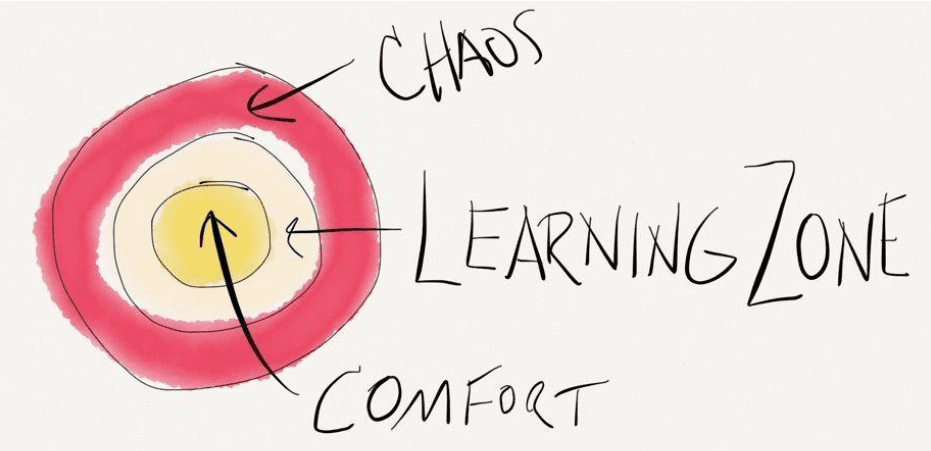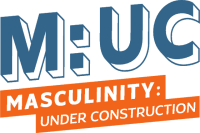This document should not deter people from joining our efforts, the requirement for joining is curiosity, willingness to learn and caring for other folks.
Terminology and accessibility
In writing this document, we try to strike a balance between several priorities. Primarily, this document will guide our future efforts, and it needs to represent all of these complexities. At the same time the document needs to be accessible for those with less of a background in academic social justice. However, anyone new in this field could also be expected to put some effort in understanding the basic terminology to become a competent ally. We are open to suggestions and questions, and exploring other means to make the document more accessible.
Vision
Men, masculinity and masculine folks are not bad or evil. Masculinity stands for ideas that people use to decide who they are, what they should do, how they should feel and how they should relate to others. And there is good news for all masculine folks: we are finally at a point in time where it is accepted and even expected to reflect critically on what it means to be a man.
As male-identified folks, we recognize that masculinity provides us with unearned privileges that other folks do not benefit from, due to our position in a society dominated by power imbalances and inequalities between people. We recognize that these imbalances and inequalities are systematic and are largely perpetuated by those who benefit from them, forming complex interconnected systems of oppression. Our position in society exempts us from many of the hardships that other folks are subjected to on a daily basis and, for this reason, it may be harder for us to recognize these power dynamics and empathise with those who do.
We recognize that due to our privileged position, we have a particular obligation to ensure that we do not harm others, and that our actions do not perpetuate harmful social inequalities.
Furthermore, we also recognize that we have a particular obligation to leverage our privilege to actively counteract these inequalities and dismantle systems of oppression. This group, by and for privileged folks, is an effort to meet these obligations.
We welcome anyone with the courage to become a better man, be open to new information and willing to critically reflect on their own behaviors and belief-systems.
Goals
Masculinity: under construction exists to support the opportunity and obligation to reflect, and to develop a space that is optimal for masculine folks, to work together, to learn, and develop the necessary skills and knowledge to build a healthy masculinity. As facilitators, we develop this group with this goal in mind, and therefore we take the responsibility to ensure that the group is not used for other purposes or has contrary effects.
To meet these obligations, we actively choose to explore and understand our position in society and how we can or should relate to others by:
- Recognizing and accepting that we have -- and continue to benefit from -- unearned privilege and that this harms others as well as society at large
- Remaining open and listening to other people with different experiences, so that we can continue to grow and develop ourselves
- Holding ourselves and each other accountable, by learning about how our own privilege manifests and how other folks experience this world
- Aligning ourselves with the need of our communities as active allies, leverage our privilege in support of marginalized folks, developing and promoting allyship skills
- Developing a community that acts as a support network and challenges harmful aspects associated with masculinity
Continually developing and nurturing healthier expressions of masculinity
These goals will benefit everyone in society, including ourselves. However, the primary goal is to meet above stated obligations.
VALUES
Our participation in this group will be grounded in intersectional feminist values, and our work is guided by an awareness of power relations, structural and interpersonal. Concretely, we recognize the following systems of oppression:
- Sexism
- Colonialism
- Racism
- Islamophobia and other forms of discrimination, stigma and prejudices on the basis of religion
- Ableism (visible and invisible)
- Sex work is work
- Capitalism
- Discrimination, stigma and prejudices on the basis of sex and gender, including transphobia, biphobia
- Nationalism, statism
- Discrimination, stigma and prejudices on the basis of poverty, homelessness and substance use
- We believe that all systems of oppression work simultaneously. The systems intersect and reinforce each other. It is harmful to prioritize the fight against one system over the fight against another system.
- We recognize that there are other systems of oppression that we are currently unaware of, and will work to increase our awareness of such systems.
Furthermore,
- We recognize that those oppressed are the primary experts on their own experiences and position in society, while acknowledging that systems of oppression can be internalized.
- We recognize that folks who are subjected to these systems of oppression are more than the sums of their oppressions. Dismantling systems of oppression requires a recognition of unconditional humanity.
- We recognize that we will make mistakes, but commit to being accountable, taking responsibility and learning from our mistakes.
- We do not believe that “reverse” racism, stigma or discrimination exists.
As allies, we should redirect any benefits from our efforts towards those who are currently marginalized.
Approach
We will initiate and engage conversations, creating a platform for developing common ground and understanding between privileged and marginalized voices, actively counteracting power dynamics present in society.
- We will create a learning space (see below for more details), where privilege is checked and held accountable and marginalized voices are amplified and respected.
In this learning space we work towards healthy forms of masculinity, by eliminating harmful elements, and strengthening or introducing elements that nurture human connection and empathy. - We do not accept oppression, but rather speak up actively, de-escalating where possible and utilizing non-violent communication. We prioritize calling folks in, not out.
Support one another in the learning process, even though it may be uncomfortable. - Ensure that although we provide privileged folks with an opportunity to learn, the interests of marginalized identities remain at the center of our work.
- We believe in cooperation, solidarity, empathy and strength in numbers. We will not prioritize the interests of our own group over those of allied organizations, especially not those organizations that are grassroot lead.
Learning Process
First we want to acknowledge that, for many, the learning process can be tedious, painful and anxiety-provoking. The learning cannot be done in a “safe space”. A safe space is a space where as a first priority, no harm is done. Making mistakes and being challenged is an integral part of learning. In order to learn, participants or group members will have to sit with a level of discomfort and unease. It is part of privilege to instinctively avoid discomfort. In order to grow, we need to break through this instinct. However, the discomfort is not a goal in itself; it has to be constructive and lead towards the group goals.

We want to ensure that our messaging is strategic and on topic, and keep the discomfort constructive. If messaging becomes sexist, racist, or oppressive in other forms, the discussions based on these messages are not constructive but harmful. Especially since our main goal is counteracting oppression, special attention to messaging is necessary. We (facilitators) want to take responsibility to ensure that conversations, while challenging, do not perpetuate oppression or enable abuse.
Within the boundaries of learning, discomfort and not perpetuating oppression, the safety of participants are a priority. Some social and cultural messages around masculinity (a.k.a. “toxic” masculinity) have the potential to harm masculine folks as well as others. We think that to recognize the oppression of others, it is necessary to first recognize how masculine folks oppress themselves. You are invited to reflect with self-compassion.
Finally, within our group there will be different levels of privilege, knowledge, resources, skills and power, as well as trauma, experienced oppression and vulnerabilities. Awareness of internal differences is important to avoid harm, disengagement, silencing, marginalizing or rejection.
We want to meet participants where they are, but not leave them there, and we invite you to join us in this collaboration.
Problematic participation
The purpose of this group is to create a learning space optimal for masculine folks to unlearn unhealthy ideas about masculinity and replace them with healthier, more complete and wholesome ideas. As facilitators, we are committed to doing our utmost to ensure that the spaces we are making available are used for the purpose of meeting group goals and are not harmful to participants or to society at large (for example, by perpetuating toxic, violent or otherwise oppressive behaviours or ideas).
In order to ensure that the group remains focussed on its goals, we have developed a short procedure to identify and address behaviours or ideas that do not meet our community standard of acceptability. The name of this document is “Considerations and procedures for problematic participation”. The goal of this procedure would be to determine which participants to call in, which to call out, and how to go about it.
This is a process to remove members from the group, and not for removing specific posts. Currently we take a liberal approach with regards to removing posts: if we feel it is harmful, we will send a message to the other facilitators, and with approval of one other facilitator (and no dissenting facilitator) delete the post.
